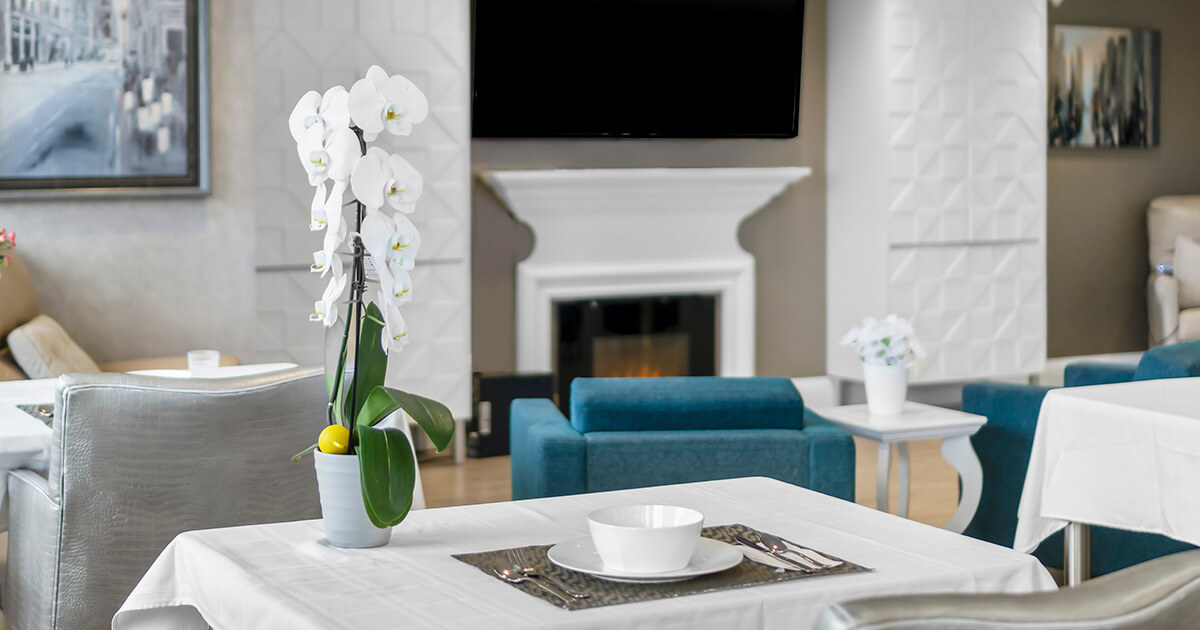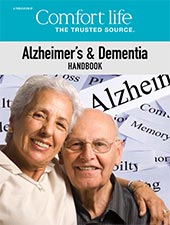What to know about this topic:
Dealing with a loved one’s dementia diagnosis is heartbreakingly difficult,and the inevitable search for great care is one more burden for caregivers. Robert Harris spent a year searching for help for his ailing wife before he "found the right place for us" in Sagecare 147 Elder Street. "Personal involvement is a clear focus for them," he says. He’d nearly given up, but in his first meeting, Sagecare asked about his wife’s needs, "and an hour later, we were still talking. They were still asking questions." He’s been impressed ever since.
The dedicated specialization in dementia care sets Sagecare 147 Elder Street apart for Robert and others who’ve found a home for loved ones there. Dealing with Alzheimer’s or other forms of dementia is a unique, overwhelming challenge, but at Sagecare, dementia care is the norm. It has been for more than 20 years.
Sagecare provides a homelike setting, limited to no more than 50 residents, where the ratio of residents to caregivers is never more than four to one. The other aspect that Robert likes is their philosophy. As expressed by Sharon Toor, Sagecare CEO, this is rooted in the homelike setting. “Nurture, empathy, compassion, and knowledge create an environment for your loved one to join what’s really an extended family,” she says. With their focus on relationships first, feelings of trust endure even as memories may not.
“We learn every day,” she adds. “We’re founded and have ‘grown up’ as person-centred—the person always comes first. Their experience matters. Their whole life matters. We stay versatile, too, because therapies, engagement strategies, routines—even words—that work well with one elder may work poorly with another. Or they may work well today but poorly tomorrow. That is the nature of changing cognitive abilities.” This nuanced approach separates Sagecare from others. It’s built right into the way the community was founded (it’s actually three homes turned into one) and continues to operate 20 years later.
Thanks to Sagecare, Julia can be a daughter again
“The burden of the disease is so large,” says Julia Burchmore whose dad lives here. Her mom had committed herself to providing personal care for her husband, but “she had no idea and we had no idea how difficult this disease would be to manage on a daily basis.” After seven years of providing care, her mom relented and after a challenging search, they found Sagecare. Now, her father is “doing very well there—but my mother is also doing incredibly well as a result of this decision.”
Removing the burden of care “allows families to get to the point where the person who’s been caregiving can go back to being a wife or a son or a daughter,” says Toor.
“They understand what the disease is like and how to get the best response out of people living with dementia,” Julia says. Her dad responds especially well to music therapy. “Having that level of music and art therapy available for him to experience on a daily basis makes a huge difference,” she says. “But also, [staff have] the energy to look after all the needs in a loving, kind manner. It’s wonderful.” She no longer worries about “mom’s burnout and stress.” They’re back to being mother and daughter. He’s found an intimate home that cares for all his needs. They’ve found liberation.
Therapies and a village of help
“Music is the element that flows daily, seven days a week,” says Sharon Toor. Another important sense is touch. “We do tactile therapy, from pet therapy to art therapy… Residents can do things within the parameters of care, watched over by professionals attentive to their distinct needs.”
It all begins where the family and senior are. “We get to know the client in their home, in the setting where they’re most comfortable, before we bring them here and make this their home.
“They say it takes a village to raise a child” she muses. “It’s similar with caring for seniors facing these challenges. It takes specialists, the therapists that come in, the PSWs, and other help staff. … It’s a whole gamut of people working together before a resident can ever move into our humble home. We’re not focused on selling services so much as our staff, the most important thing we offer. … It’s really a holistic approach.”




